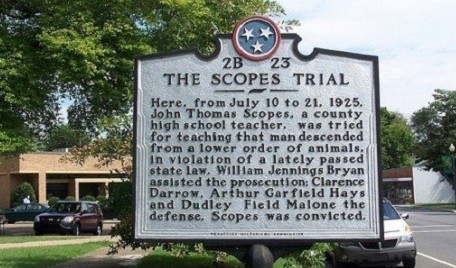I can’t claim to have known him – he was a friend of a friend of my late husband’s during the late ‘60s, and since then I struggled mightily, and in vain, to remember his name – but I’ve always remembered that he did something immensely important.
How many individuals can say they forced the Tennessee General Assembly to repeal a stupid law?
He drifted back into my memory last week after the news that the state of Tennessee had fired Dr. Michelle Fiscus for doing her job. Fiscus, who was the medical director of immunization programs at the Tennessee Department of Health, sent a memo to vaccine providers about the Mature Minor Doctrine, which has been in place since 1987 and allows minors who are 14 or older to get health care without parental consent. Concerned about state’s low vaccination rate and alarming number of cases of the new Covid-19 variant, Fiscus – after getting go-ahead approval from her superiors – got the word out statewide that minors over the age of 14 do not need parental approval to get vaccinated.
Predictably, this hacked off a certain breed of politicians, and a state representative from Culleoka (no, I had never heard of it either; and yes, he is a Republican) raised enough of an uneducated stink to spook Fiscus’s bosses into demanding her resignation (even though she had permission to issue the memo). She refused to resign and was fired.
The Tennessean broke the story that same day, and it went national within hours. By nightfall, TV talk show hosts were cueing up the Monkey Trial jokes. Again.
Because we just can’t seem to stop electing legislators who make us look like fools.
This turn of events got me thinking about a friend of a friend whose name I couldn’t recall, even though I have a pretty good long-term memory.
But a lot has happened since last I saw this guy. We probably met in 1966, and I never saw him again after my late husband, Joe, enlisted in the army in 1967. He was the roommate of a friend, and they rented a house in a neighborhood off Sutherland Avenue near West High School, not far from the Golf Range student housing complex where Joe and I lived the last couple of years he was in school at UT.
Our friend’s friend was a very nice guy, but we didn’t see much of him because he taught high school a couple of counties away (I couldn’t remember exactly where), and between lesson plans and the long commute, he didn’t have much time for socializing. We didn’t have a lot of spare time, either, between Joe’s classes, his job as a copy boy at the Knoxville Journal and my job as a telephone operator – plus our never-ending worries about the grim daily dispatches from Vietnam.
But I remember being shocked when I heard that he’d gotten fired for teaching his students about evolution.
This, of course, was flat-out illegal in Tennessee, prohibited by something called the Butler Act (AKA the Monkey Law), which made national headlines after another small-town science teacher, John Thomas Scopes, decided to defy the law and teach his students about evolution anyway. He was arrested and tried in 1925 at the Rhea County Courthouse where he was convicted after a bizarre, circus-like proceeding that featured celebrity lawyers – Clarence Darrow for the defense and William Jennings Bryan for the prosecution – and was covered by an army of reporters including celebrity journalist H.L. Mencken. It spawned countless books and a huge hit movie starring Spencer Tracy as Darrow that has been remade for TV.
The verdict was a foregone conclusion and the whole trial was staged for maximum effect, except for the ending, when Bryan, the most famous orator of the day, upstaged everybody by dropping dead on the courthouse steps after winning the conviction.
Anyhow, the news that Dr. Fiscus had been fired to appease a bloviating jock politician from a rural county made me think about the Monkey Trial, which made me think about the friend of a friend who challenged the Butler Act whose name I couldn’t remember.
It took Google a split second to spit out the answer.
His name was Gary L. Scott, and he was fired from his job at Jacksboro High School for teaching about evolution. Unlike Scopes, who intentionally tested the law that forced teachers not to challenge creationism, Scott didn’t realize he’d done anything illegal when he taught his students about evolution. He sued the school system for reinstatement and was rehired with back pay. But he didn’t stop there and filed a class action lawsuit in U.S. District Court in Nashville demanding the repeal of the Butler Act. He based his claim on his constitutionally protected right to free speech under the First Amendment.
Within three days, a bill repealing the Butler Act had passed both houses of the General Assembly.
And even though it became just another battle in the ongoing war of science and politics, nothing can change the fact that Gary Scott made history. A fact-filled 2017 article in Scientific American summed the case up thusly:
“(Scott) wasn’t the last science teacher to play the role of hero in the contentious history of evolution education in the U.S. But science teachers shouldn’t have to engage in heroics to present evolution forthrightly, without fear and beyond reproach.”
And neither should scientists’ nor teachers’ nor physicians’ livelihoods and reputations be held hostage by grandstanding bullies in elected office. So, when one person backs off a whole confederacy of dunces, it’s an occasion worth remembering. And Gary Scott is a hero.
Betty Bean writes a Thursday opinion column for KnoxTNToday.com.

